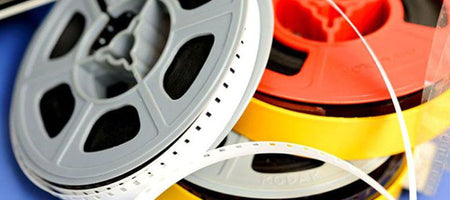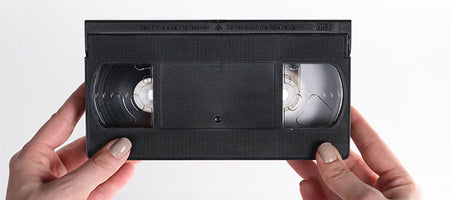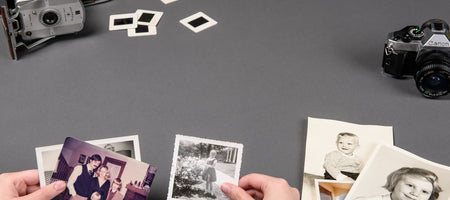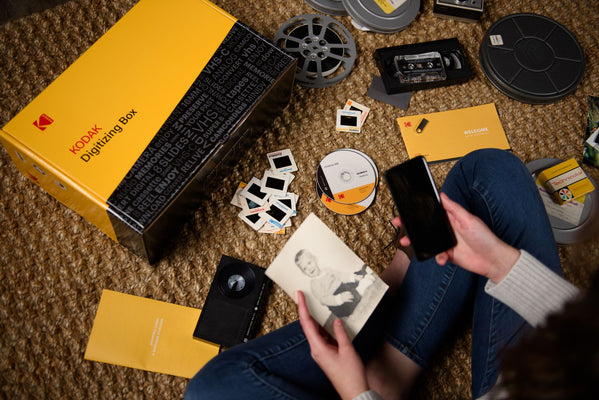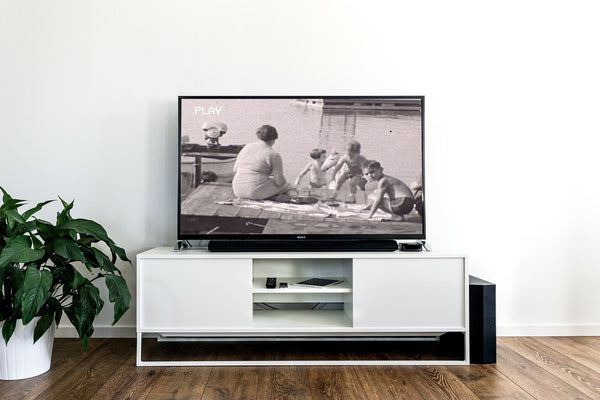As a civilization, saying we’ve come a long way is a drastic understatement. And to think that our curve of technological advancements is only growing more vertical by the year, day – hour. It’s remarkable to stop and truly think about the technological triumphs we’ve achieved over the last several millennia – many beneficial, some detrimental. But let’s focus on the positives.
So with that, here are 10 of the best tech inventions in history.
The first camera
Just a little over 200 years ago, the very first photograph (well, partial photograph at least) was captured by Nicephor Niepce. Using a camera he made himself along with paper coated in silver chloride, he was able to capture an image which darkened when the coated paper was exposed to light. Fast forward to 2020, and we’re able to snap, filter, edit, share and thumbs up photos with a few simple clicks and swipes. Impressive what a couple centuries of technological advancements can do.
iPhone
Before the iPhone was released in 2007, cell phones were little more than simply phones. Sure, you could text and take pictures – even hop on the internet in some cases, but the iPhone revolutionized the mobile phone industry as we know it. With the emergence of apps and a cutting-edge colored LCD screen (for the time) made it like having a phone, a TV and a computer in the palm of your hand. It was magical.
Telephone
Before the first official telephone patent by Alexander Graham Bell in 1876, the only way to relay a message to someone was via letter or in person – or maybe messenger pigeon if you were into that sort of thing. Still, those are awfully difficult ways to get things done quickly or stay in contact regularly. Luckily, Bell iterated those infamous first documented wired words to his assistant, “Mr. Watson come here. I want to see you.” And the rest is wired in history.
Printing press
Books were hard to produce back in the day. It’s not like there was a Kinkos just down the street ready to photocopy. Books took effort and lots of handwritten hours to produce. But thanks to Joahnnes Gutenberg in 1440-1450 and his infamous printing press, society could finally print books in mass quantities. In fact, in a time that would normally take one person 5 months to write a book, Gutenberg’s machine could produce 500 books in that same time. What came to follow was a huge increase in not only societal literacy but a boom in technology.
Flight/Airplane
If you really think about it, it’s incredible having access to easily commute between cities, states, countries – continents. We’re spoiled in our pursuit of travel and constant wanderlust. And thanks to the Wright brothers’ first powered aircraft in 1903, flight is a luxury that we’ve been indulging in ever since. In a world where time is truly as valuable as money, being able to hop on board a giant tin can and hurdle through the air at approximately 500 mph to a completely different continent is just incredible. And when it’s put that way, it’s understandable why some people are incredibly apprehensive about flying. It’s a terrifying thought.
Television
For home family entertainment, nothing tops the invention of the television. And while there have been many iterations of the TV over the century, from the original black and white electronic TV in 1927 to the HD 4K jumbo LCD TVs of today, it’s importance can’t be emphasized enough. Because without that box of flashing pictures and colors, we never would have had videotapes, DVDs, home console video games, and most importantly, a real-time view into world news and all the TV shows and movies that have shaped our culture.
And speaking of videotapes, if you have an old dusty box of VHS tapes, camcorder tapes – even film reels, Kodak Digitizing can help digitize them so you can continue to enjoy those memories for years to come.
Microwave/refrigerator
These two kitchen staples are so hard to choose between (for very different reasons) that I’m grouping them together because of their impact on shaping how we eat today. Before refrigerators, preserving food was a chore. And even then, it didn’t always successfully work. It wasn’t economical, especially as the world around us began to advance quickly. Luckily, by 1834 the first vapor-compression refrigeration system was built with the first commercial ice-making machine coming a couple decades later in 1854. By the 19-teens, refrigerators became the norm for home use.
Everyone loves a good slow, home cooked meal. But that’s not always practical. And housewives everywhere rejoiced in the 1950s when the microwave became a household staple. Meals could be cooked and reheated faster and more convenient than ever.
Electricity (electric light)
Thomas Edison is a household name for his invention of the electric light bulb in 1879. And while the original inventor of electricity is often debatable – was it Ben Franklin? Edison? Nikola Tesla? One thing is for certain, all three brilliant inventors should be credited for helping to make our world a brighter place. It’s quite possibly the greatest discovery/invention of all time.
Internet
Thanks to Al Gore … wait, uh-huh … what? You’re telling me he didn’t invent the Internet? Wow, everything I’ve ever known is a lie. But regardless, the invention of the internet was and still is one of the greatest inventions of all time. I mean, how do you put a value on nearly the entire wealth of knowledge of human history being easily and quickly accessible in one, convenient location? And just to think, with all that knowledge at our fingertips, we’re still more enthralled with cat videos and the latest Kardashian drama.
Smart watch (wearable devices)
When it comes to healthier living, I’m all for devices that promote you to get up and do something. And while some smart watches/wearable devices have reached that gimmicky plateau, the idea behind them is positive. From Fitbits to Apple Watches, being able to take calls, receive texts and get notifications are all cool, but anything that encourages you to get up and go, track your steps, and monitor your heart rate gets a thumbs up from me, especially in a world where the majority of jobs and entertainment requires us to sit down.

